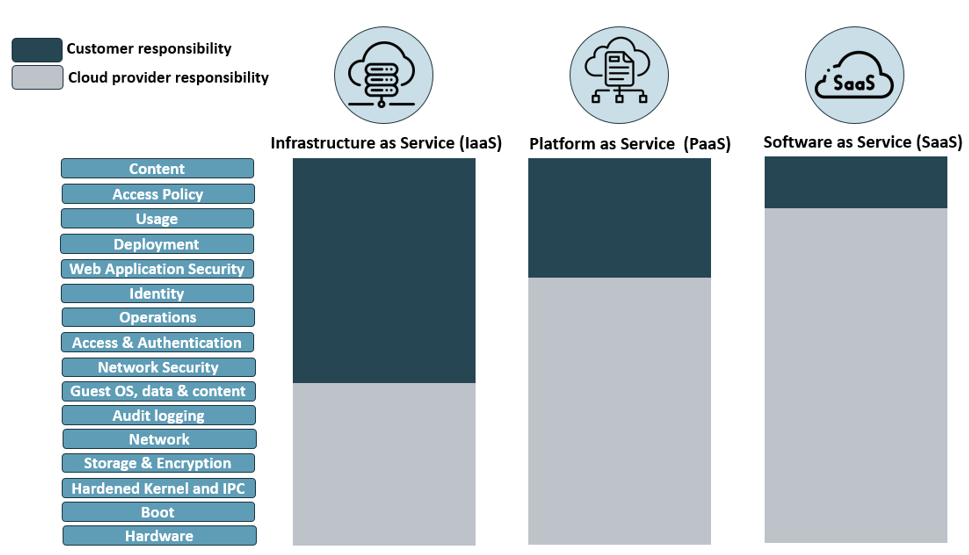Europe's Nuclear Shield: A French Minister's Proposal For Shared Responsibility

Table of Contents
The French Proposal: Details and Context
The specifics of the French Minister's proposal for shared responsibility regarding nuclear deterrence remain somewhat vague, but the core idea revolves around a greater degree of European involvement in the planning, decision-making, and potentially even the operational aspects of France's independent nuclear arsenal. This isn't a proposal for sharing the arsenal itself, but rather a shift towards a more collaborative approach to its strategic use and implications.
- Level of Sharing: The exact level of shared responsibility remains undefined, ranging from enhanced consultation and joint planning to more substantial participation in decision-making processes concerning the use of France's nuclear weapons.
- Countries Involved: While the proposal initially focuses on key European Union members, the ultimate scope of participation could extend to other NATO allies. The potential inclusion of countries with differing views on nuclear weapons presents a major hurdle.
- Decision-Making Processes: This is arguably the most contentious aspect. Determining how decisions relating to the use of nuclear weapons would be made collectively, while respecting national sovereignty, poses a significant challenge.
This proposal emerges within a complex geopolitical context marked by Russia's aggression in Ukraine, shifting NATO dynamics, and concerns about the long-term commitment of the United States to European security. The perceived need for a more robust and independent European security architecture is a significant driver behind this initiative. The proposal significantly impacts transatlantic relations and the future of the French nuclear arsenal.
Arguments For Shared Responsibility
The proponents of shared responsibility for Europe's nuclear shield advance several compelling arguments:
Enhanced Deterrence
A collective approach could strengthen Europe's overall deterrence posture.
- Increased Credibility of Deterrence: Shared responsibility could enhance the credibility of the deterrent effect by demonstrating a stronger, more unified front against potential aggressors.
- Reduced Reliance on a Single Nuclear Power: Sharing the burden of nuclear deterrence reduces over-reliance on either the US or France alone, providing a more resilient and distributed security architecture.
- Greater Burden-Sharing Among Allies: This allows for a fairer distribution of responsibilities and costs associated with maintaining a credible nuclear deterrent.
Strengthened European Sovereignty
This proposal is presented as a pathway to a more assertive European security policy.
- Reduced Reliance on US Nuclear Umbrella: A shared European nuclear shield would lessen dependence on the US nuclear umbrella, enhancing the continent's strategic autonomy.
- Greater Control Over Own Security: European nations would have increased control over their security decisions, moving away from a reliance on external powers.
- Stronger European Identity in Defense: A joint nuclear endeavor could foster a stronger sense of shared identity and responsibility within the European defense community.
Improved Strategic Coordination
Shared responsibility necessitates closer cooperation.
- Joint Planning: A shared responsibility would require joint military planning and exercises, improving interoperability and readiness.
- Improved Intelligence Sharing: Enhanced cooperation would improve intelligence sharing and analysis, leading to better risk assessment and response capabilities.
- Harmonized Defense Policies: Closer coordination could facilitate harmonization of defense policies and capabilities across European nations.
- Stronger EU Defense Capabilities: This could serve as a catalyst for strengthening the overall defense capabilities of the European Union.
Challenges and Concerns
Despite the potential benefits, several significant challenges and concerns must be addressed:
Nuclear Proliferation Risks
Expanding access to nuclear weapons or knowledge poses significant risks.
- Concerns About Accidental Use: The complexities of shared control increase the risk of accidental or unintended use.
- Risk of Nuclear Material Theft: Shared responsibility could inadvertently increase vulnerabilities related to the security of nuclear materials.
- Impact on Treaties Like NPT: The proposal could potentially strain the existing international nuclear non-proliferation regime and the objectives of the Nuclear Non-Proliferation Treaty (NPT).
Political and National Sovereignty Issues
Potential conflicts among member states are a major hurdle.
- Differing Views on Nuclear Weapons: European nations hold varying views on the role and acceptability of nuclear weapons.
- Veto Power Concerns: Decision-making processes must accommodate the sensitivities of individual states and potentially include veto powers, which could hamper effective response.
- National Sensitivities: National pride and sovereignty concerns may complicate efforts towards achieving shared responsibility.
Economic Costs and Resource Allocation
The financial implications are substantial.
- Cost-Sharing Mechanisms: Developing equitable cost-sharing mechanisms for the maintenance, modernization, and security of the nuclear arsenal will be complex.
- Budgetary Constraints: Member states might face budgetary constraints, hindering their ability to contribute adequately.
- Economic Impacts: The economic effects of a shared nuclear responsibility will need to be carefully assessed and mitigated.
Conclusion
The French Minister's proposal for a shared European nuclear shield presents a bold vision for a more unified and independent European security architecture. While the potential benefits, including enhanced deterrence, strengthened European sovereignty, and improved strategic coordination, are significant, the challenges related to nuclear proliferation, political sensitivities, and economic costs cannot be ignored. Further discussion and debate are crucial to assess the feasibility and implications of this ambitious proposal. We need to engage in a serious conversation about the future of European defense and the role of nuclear deterrence in ensuring collective security. Exploring alternative strategies alongside this ambitious proposal is essential for safeguarding Europe's future and clarifying the potential role of a shared European nuclear shield.

Featured Posts
-
 From Wolves Discard To European Elite His Journey To Success
May 10, 2025
From Wolves Discard To European Elite His Journey To Success
May 10, 2025 -
 Exploring The World Of Celebrity Antiques Road Trip A Comprehensive Overview
May 10, 2025
Exploring The World Of Celebrity Antiques Road Trip A Comprehensive Overview
May 10, 2025 -
 Elizabeth Line Accessibility Features For Wheelchair Users
May 10, 2025
Elizabeth Line Accessibility Features For Wheelchair Users
May 10, 2025 -
 10 Tariff Baseline Trumps Trade Policy And The Path To Exceptions
May 10, 2025
10 Tariff Baseline Trumps Trade Policy And The Path To Exceptions
May 10, 2025 -
 Double Trouble In Hollywood Writers And Actors Strikes Halt Production
May 10, 2025
Double Trouble In Hollywood Writers And Actors Strikes Halt Production
May 10, 2025
Latest Posts
-
 Donald Trump And His Friend Separating Fact From Fiction In The Viral Story
May 31, 2025
Donald Trump And His Friend Separating Fact From Fiction In The Viral Story
May 31, 2025 -
 Rolan Garos 2024 Kontuziyata Na Grigor Dimitrov Analiz I Prognozi
May 31, 2025
Rolan Garos 2024 Kontuziyata Na Grigor Dimitrov Analiz I Prognozi
May 31, 2025 -
 15 Godini Rolan Garos Za Grigor Dimitrov
May 31, 2025
15 Godini Rolan Garos Za Grigor Dimitrov
May 31, 2025 -
 Elon Musk Dogecoin And The Trump Administration A Retrospective Analysis
May 31, 2025
Elon Musk Dogecoin And The Trump Administration A Retrospective Analysis
May 31, 2025 -
 Rolan Garos 2024 Grigor Dimitrov Se Zavrscha
May 31, 2025
Rolan Garos 2024 Grigor Dimitrov Se Zavrscha
May 31, 2025
